Teachable Machine
Teachable Machine is a web-based tool that makes creating (supervised) machine learning (classification) models fast, easy, and accessible to everyone. No prerequisite machine learning knowledge required.
I used Teachable Machines to create a squishmallows recognizing application based on TensorFlow.js
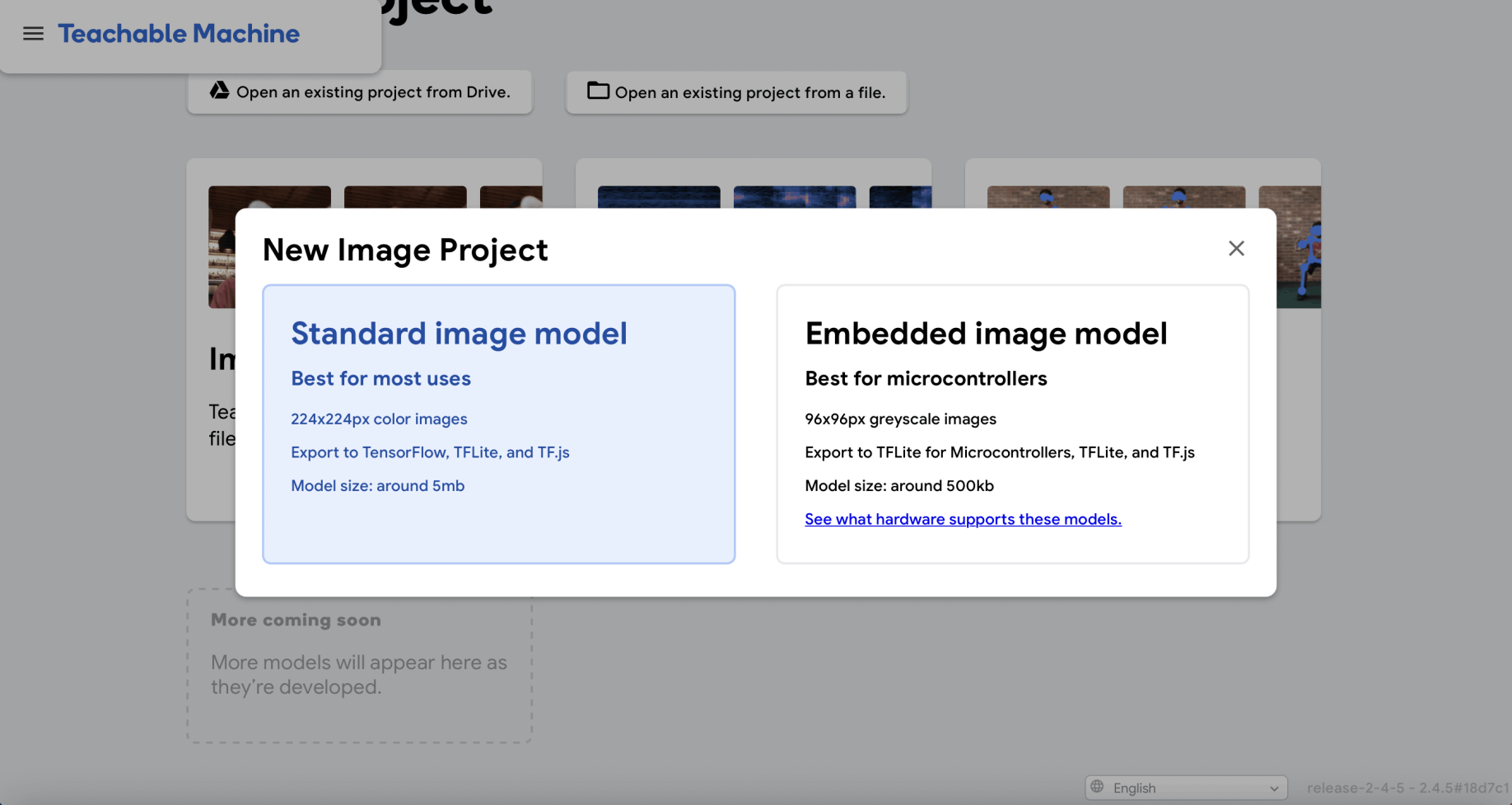
New Image Project
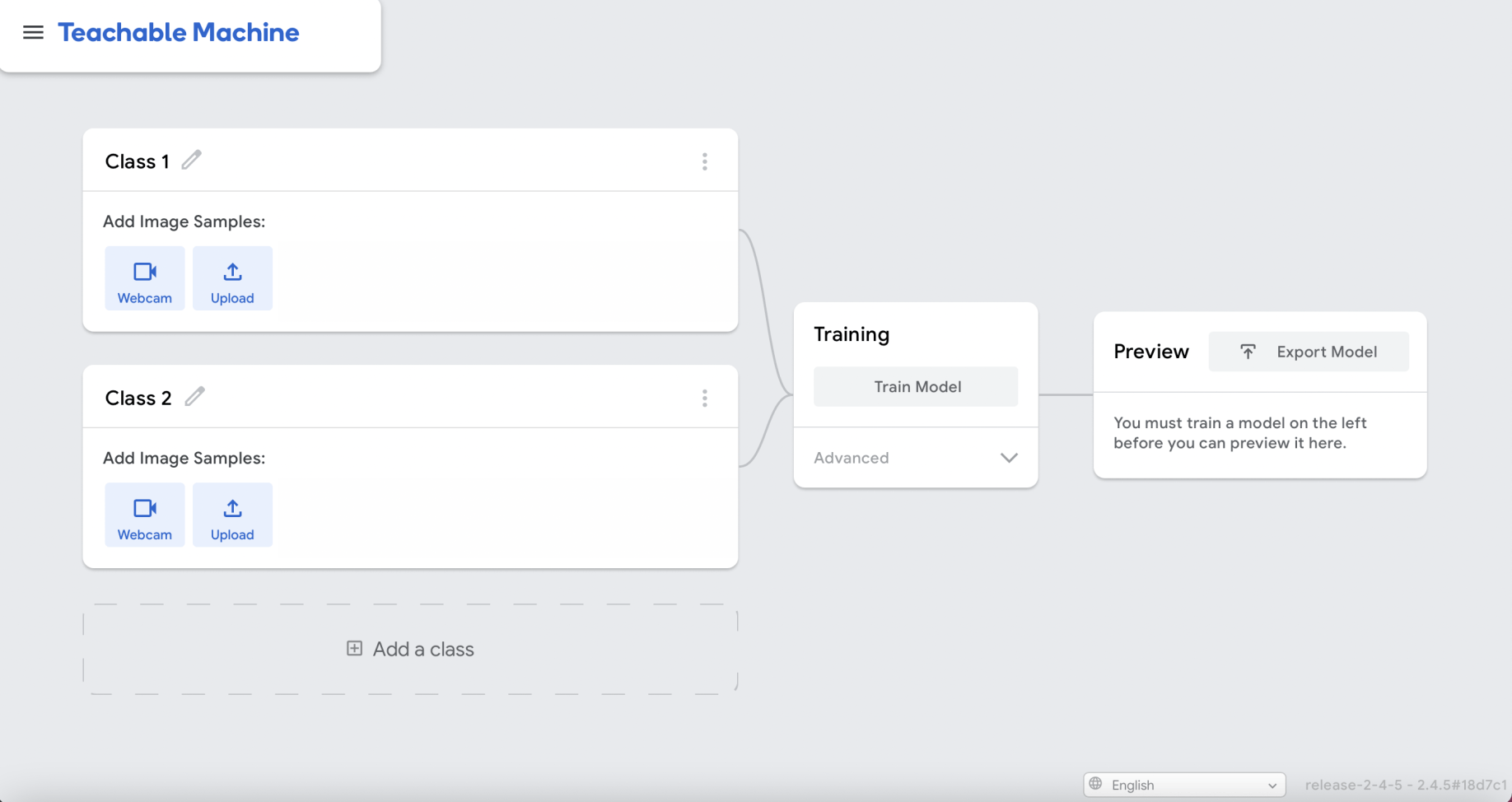
Add a third (classification) class
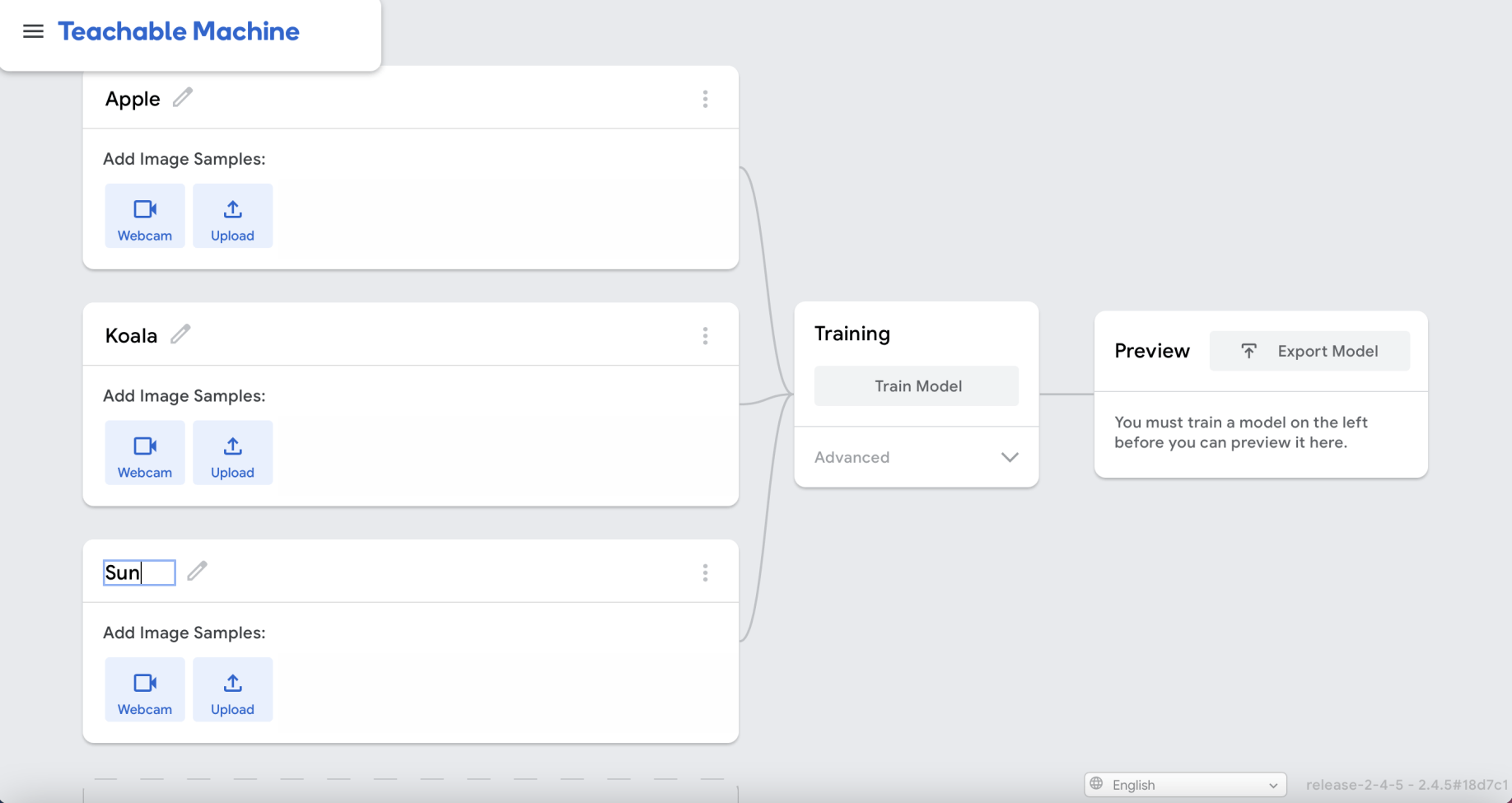
rename the three classes (one class for each squishmallow)
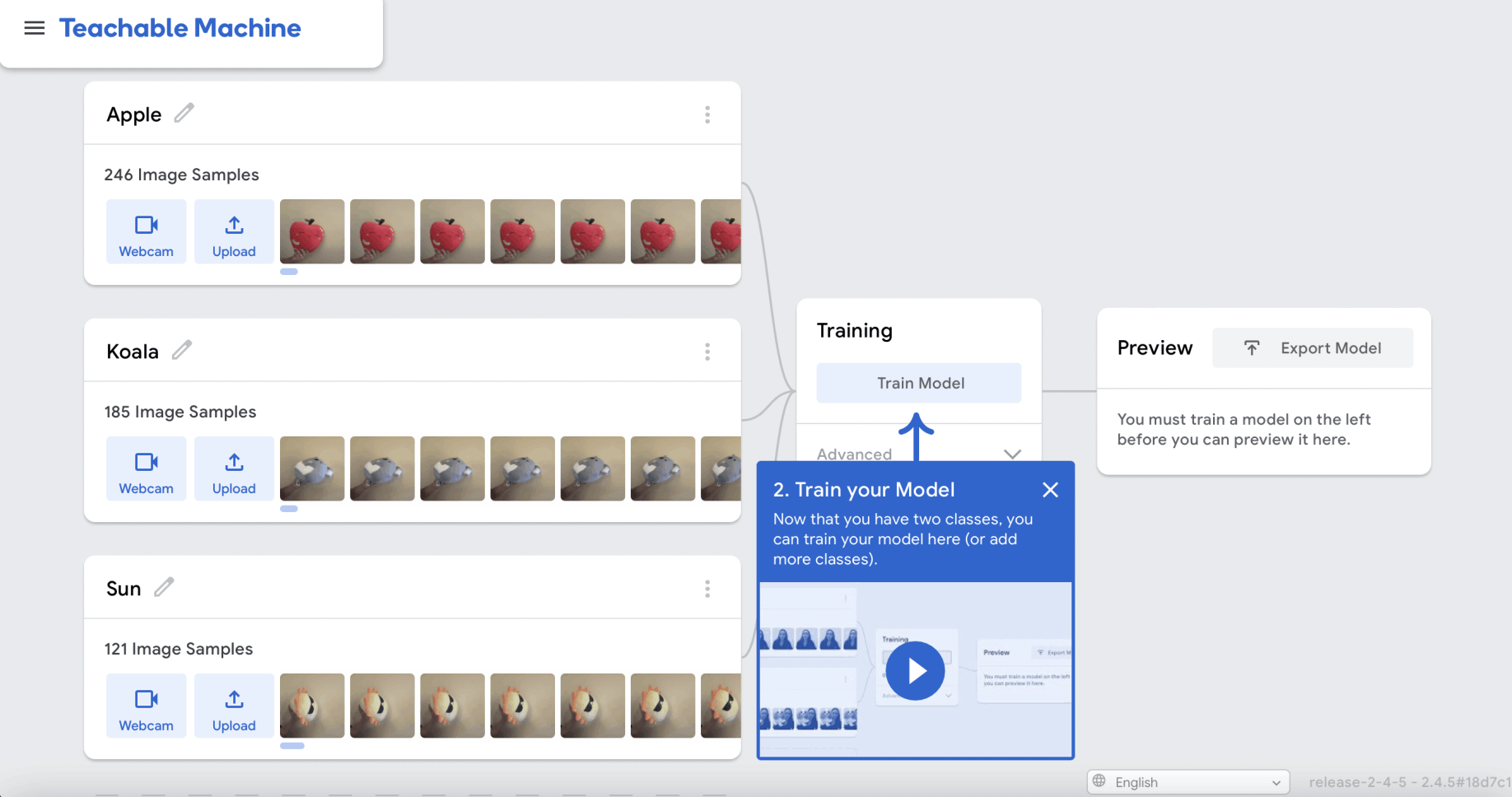
Use the Webcam button to create a set of images (for each squishmallow)
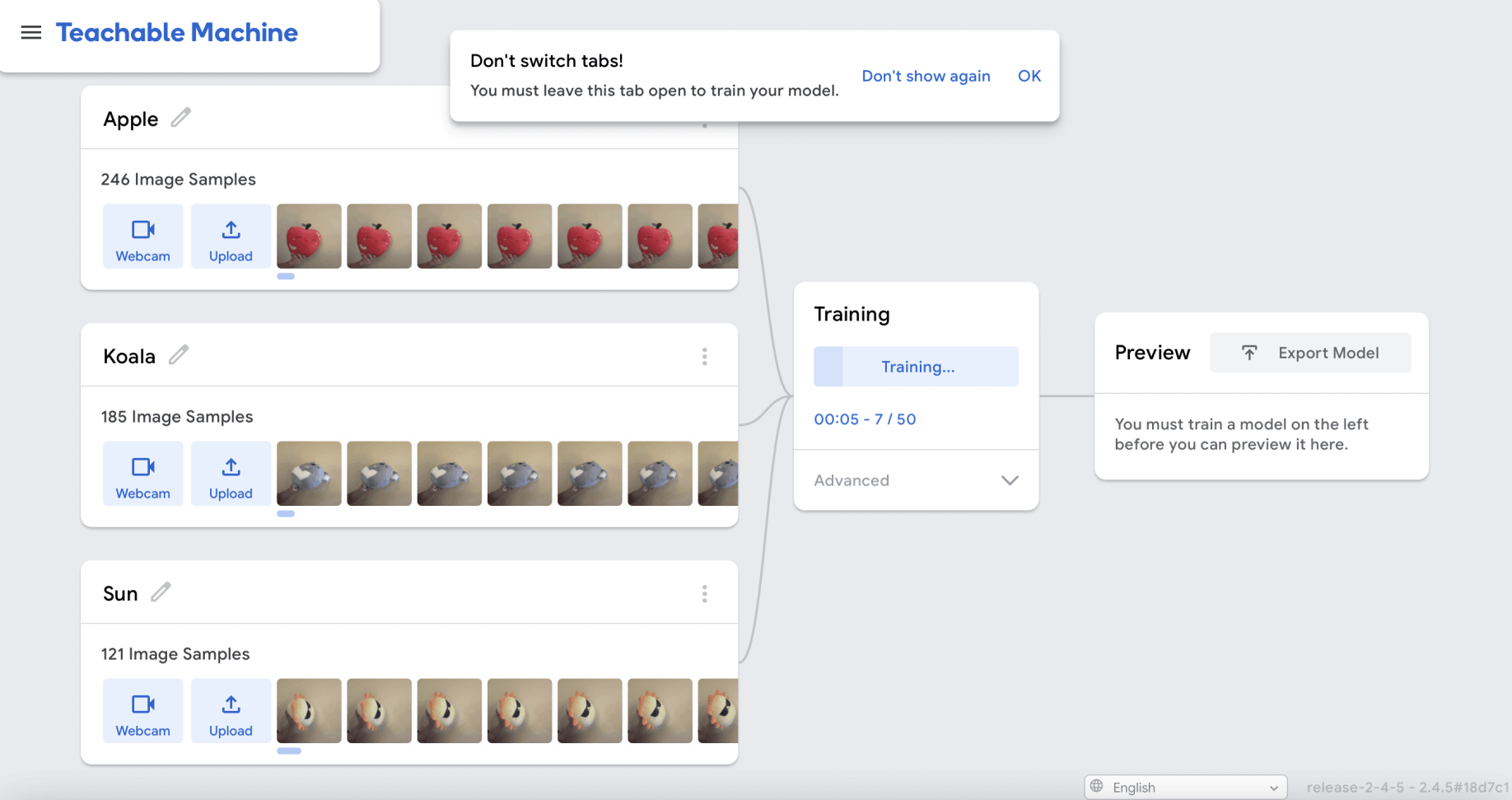
Click the train model button
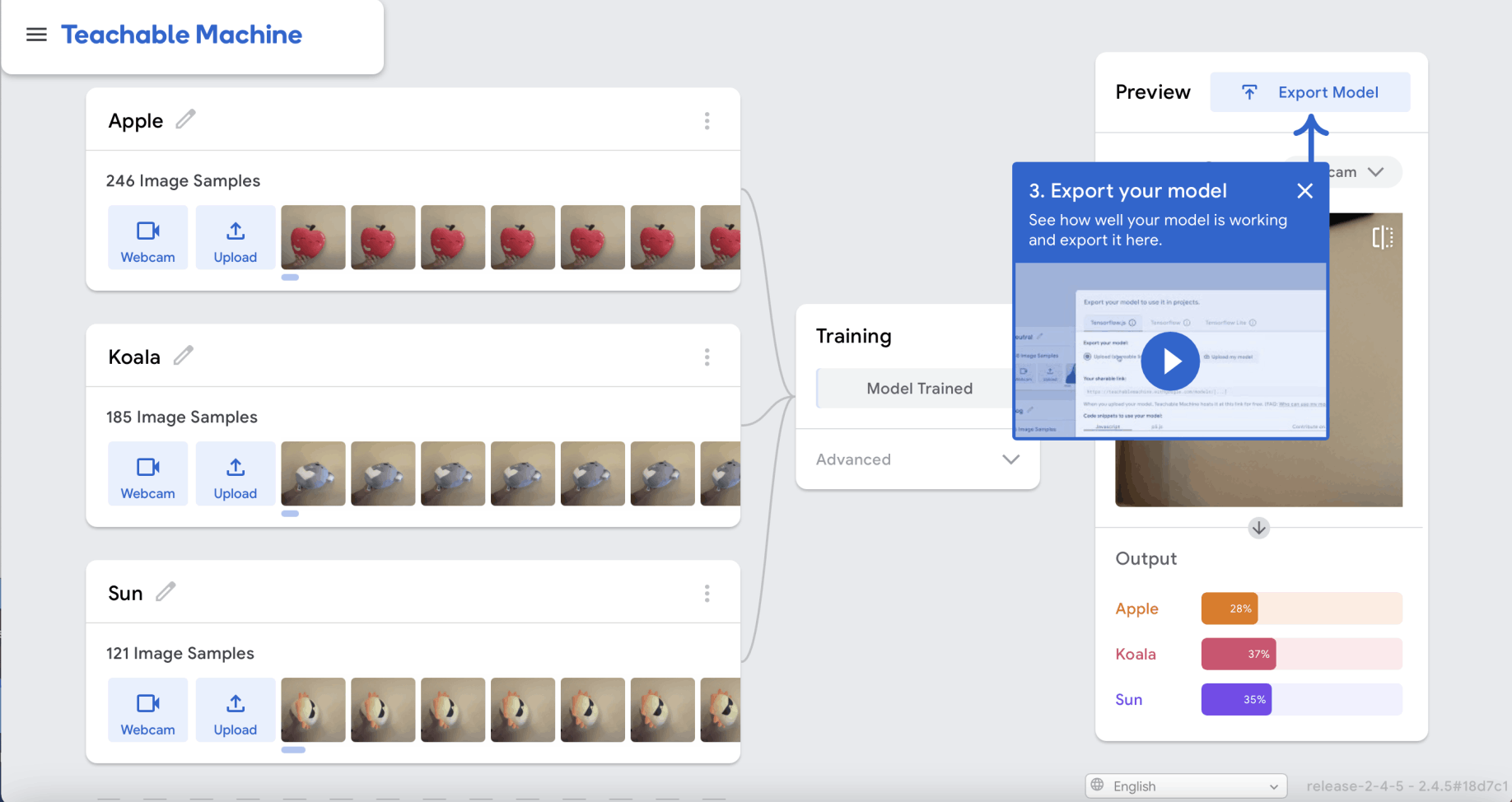
Model training complete
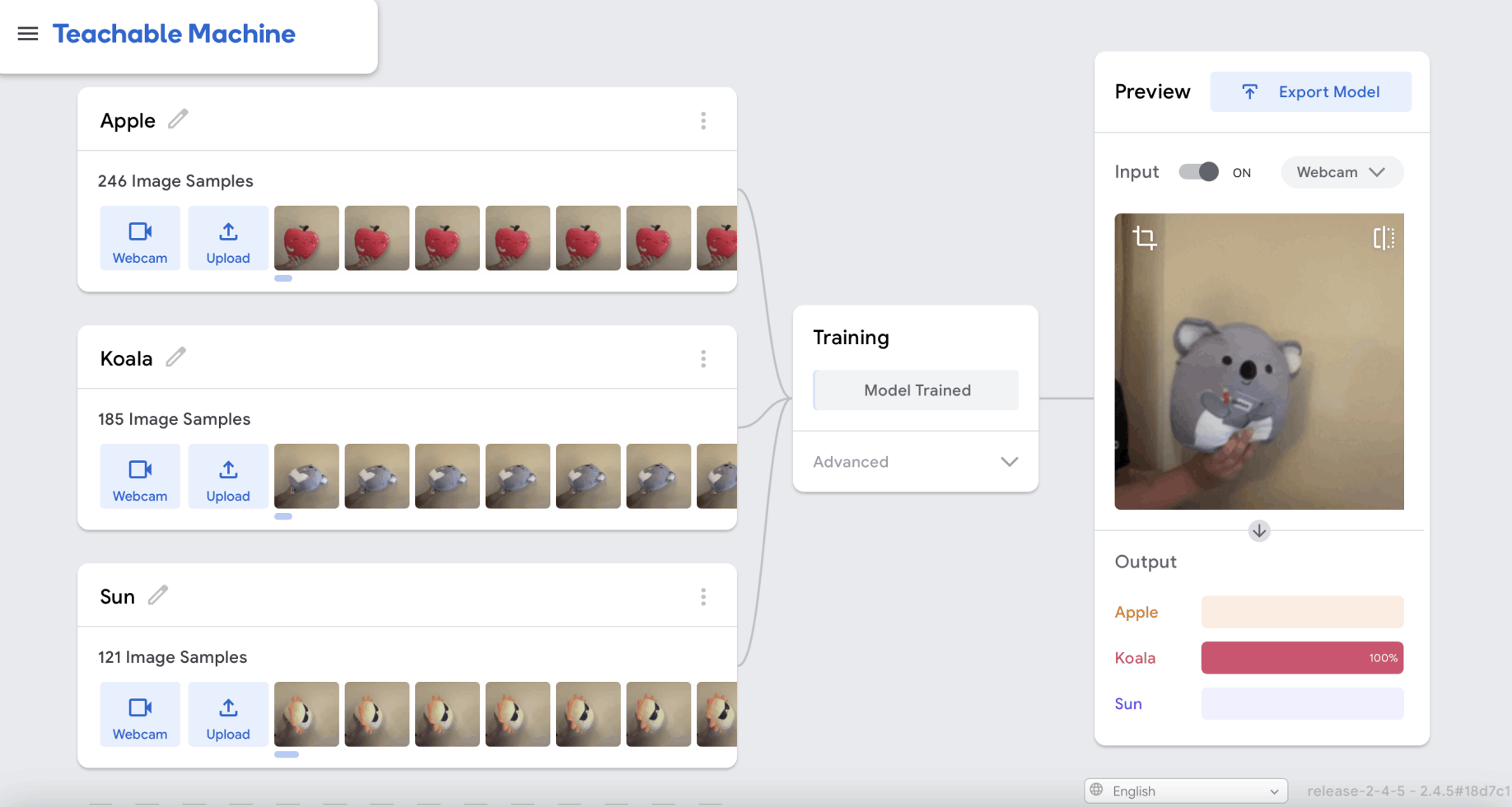
Use the preview window to test the model
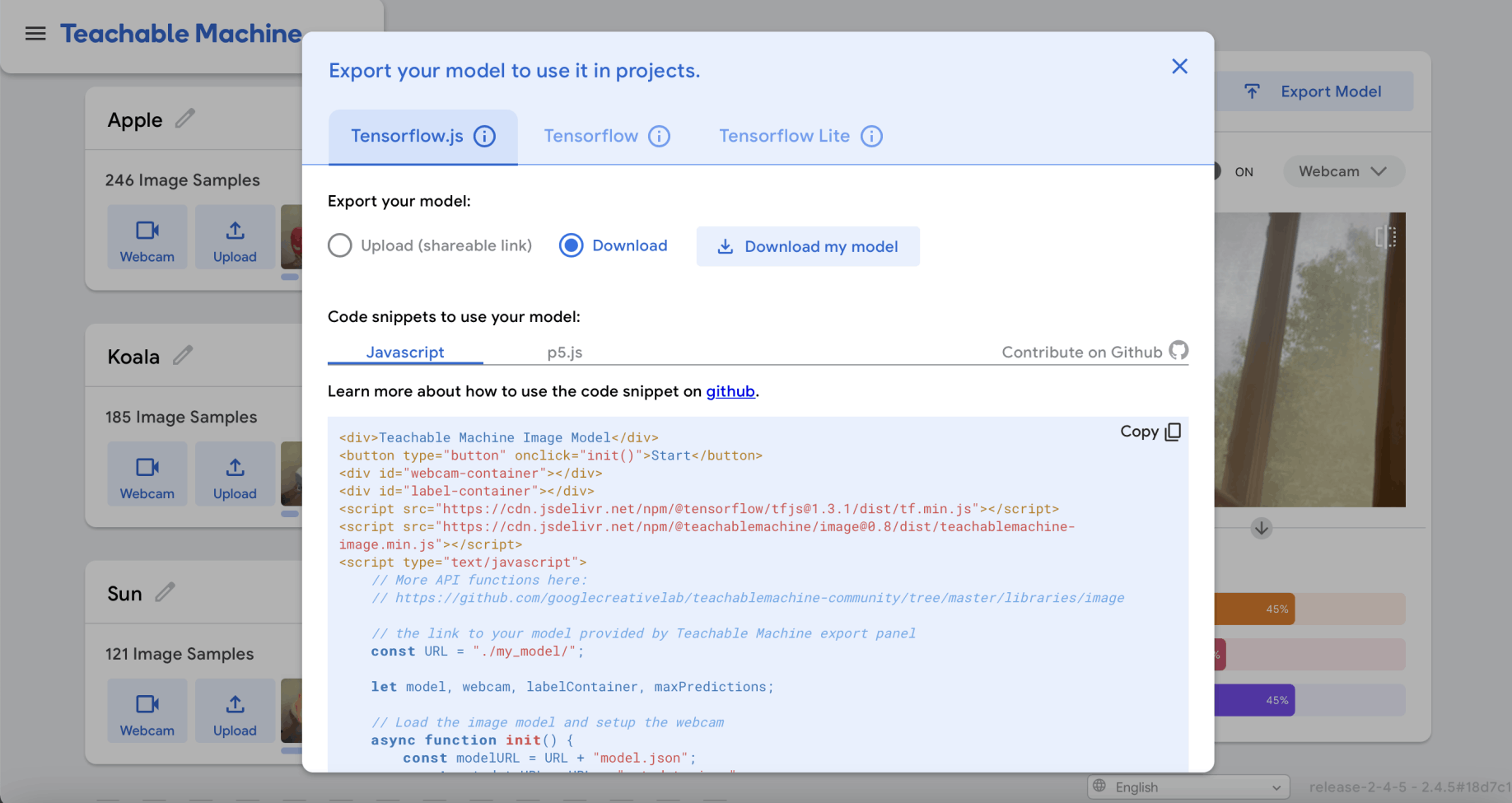
Download the model and sample web page
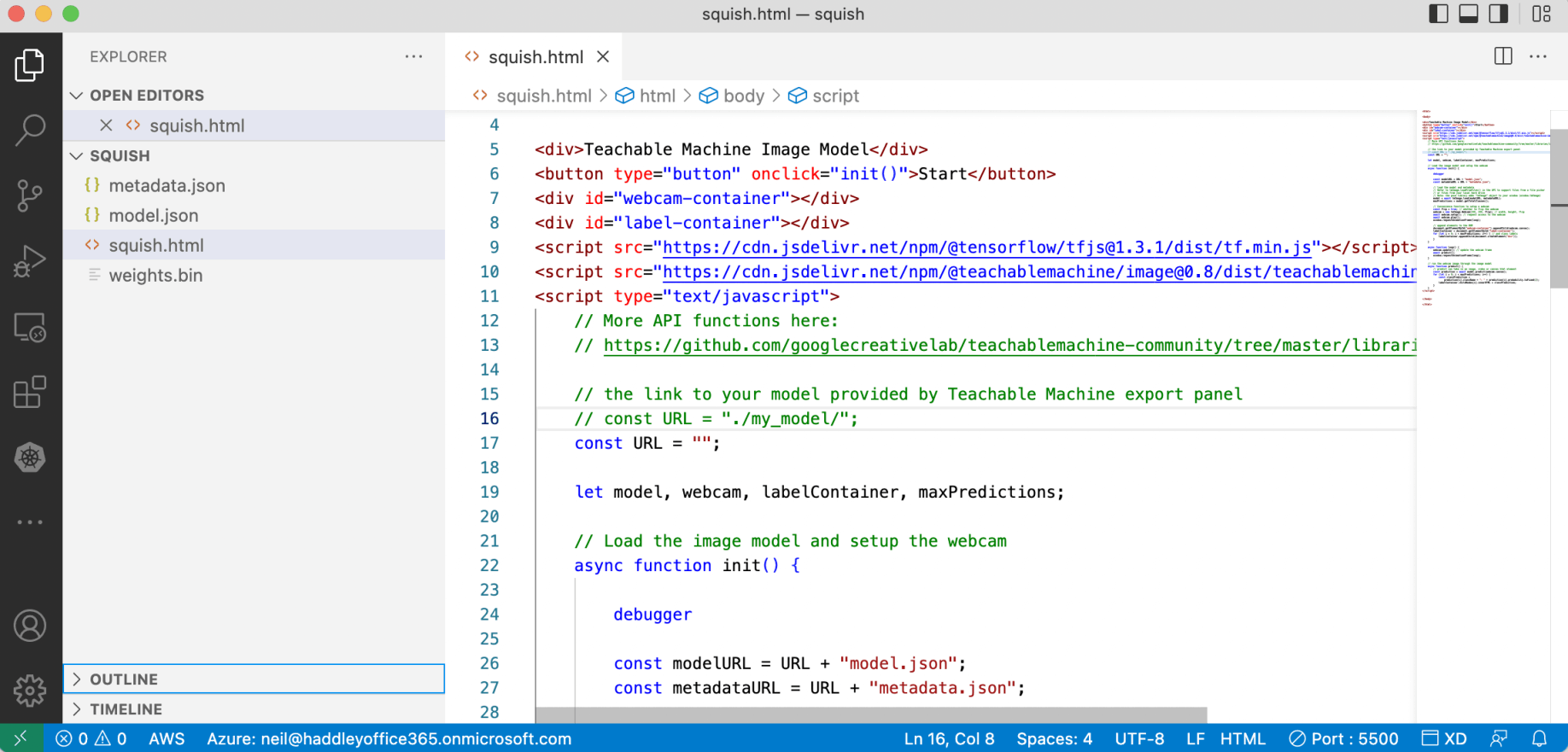
Copy the sample web page to Visual Studio Code to test
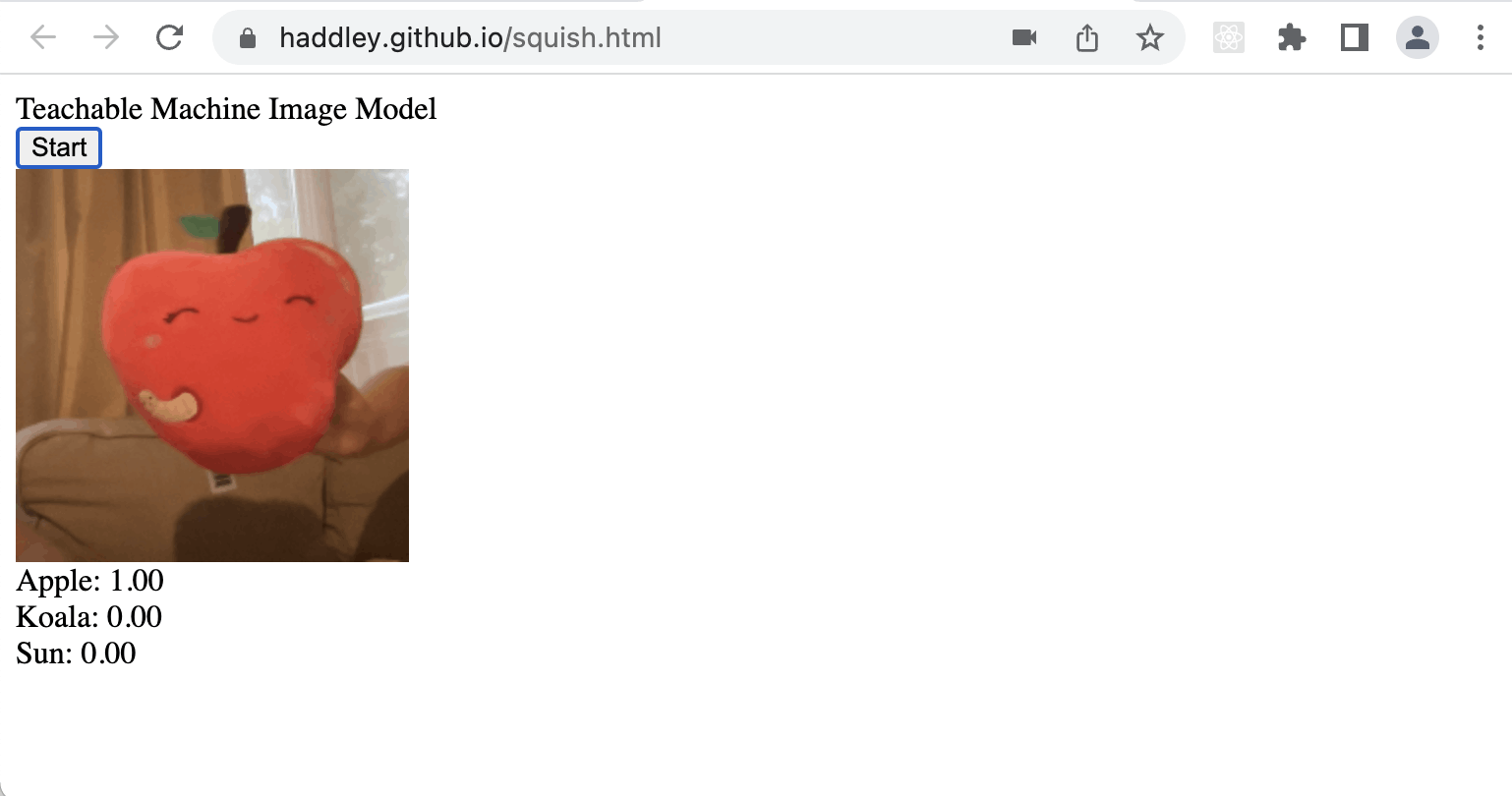
The application is 100% certain that the webcam is pointing at the Apple squishmallow.
squish.html
TEXT
1<div>Teachable Machine Image Model</div> 2<button type="button" onclick="init()">Start</button> 3<div id="webcam-container"></div> 4<div id="label-container"></div> 5<script src="https://cdn.jsdelivr.net/npm/@tensorflow/tfjs@1.3.1/dist/tf.min.js"></script> 6<script src="https://cdn.jsdelivr.net/npm/@teachablemachine/image@0.8/dist/teachablemachine-image.min.js"></script> 7<script type="text/javascript"> 8 // More API functions here: 9 // https://github.com/googlecreativelab/teachablemachine-community/tree/master/libraries/image 10 11 // the link to your model provided by Teachable Machine export panel 12 // const URL = "./my_model/"; 13 const URL = ""; 14 15 let model, webcam, labelContainer, maxPredictions; 16 17 // Load the image model and setup the webcam 18 async function init() { 19 20 debugger 21 22 const modelURL = URL + "model.json"; 23 const metadataURL = URL + "metadata.json"; 24 25 // load the model and metadata 26 // Refer to tmImage.loadFromFiles() in the API to support files from a file picker 27 // or files from your local hard drive 28 // Note: the pose library adds "tmImage" object to your window (window.tmImage) 29 model = await tmImage.load(modelURL, metadataURL); 30 maxPredictions = model.getTotalClasses(); 31 32 // Convenience function to setup a webcam 33 const flip = true; // whether to flip the webcam 34 webcam = new tmImage.Webcam(200, 200, flip); // width, height, flip 35 await webcam.setup(); // request access to the webcam 36 await webcam.play(); 37 window.requestAnimationFrame(loop); 38 39 // append elements to the DOM 40 document.getElementById("webcam-container").appendChild(webcam.canvas); 41 labelContainer = document.getElementById("label-container"); 42 for (let i = 0; i < maxPredictions; i++) { // and class labels 43 labelContainer.appendChild(document.createElement("div")); 44 } 45 } 46 47 async function loop() { 48 webcam.update(); // update the webcam frame 49 await predict(); 50 window.requestAnimationFrame(loop); 51 } 52 53 // run the webcam image through the image model 54 async function predict() { 55 // predict can take in an image, video or canvas html element 56 const prediction = await model.predict(webcam.canvas); 57 for (let i = 0; i < maxPredictions; i++) { 58 const classPrediction = 59 prediction[i].className + ": " + prediction[i].probability.toFixed(2); 60 labelContainer.childNodes[i].innerHTML = classPrediction; 61 } 62 } 63</script>